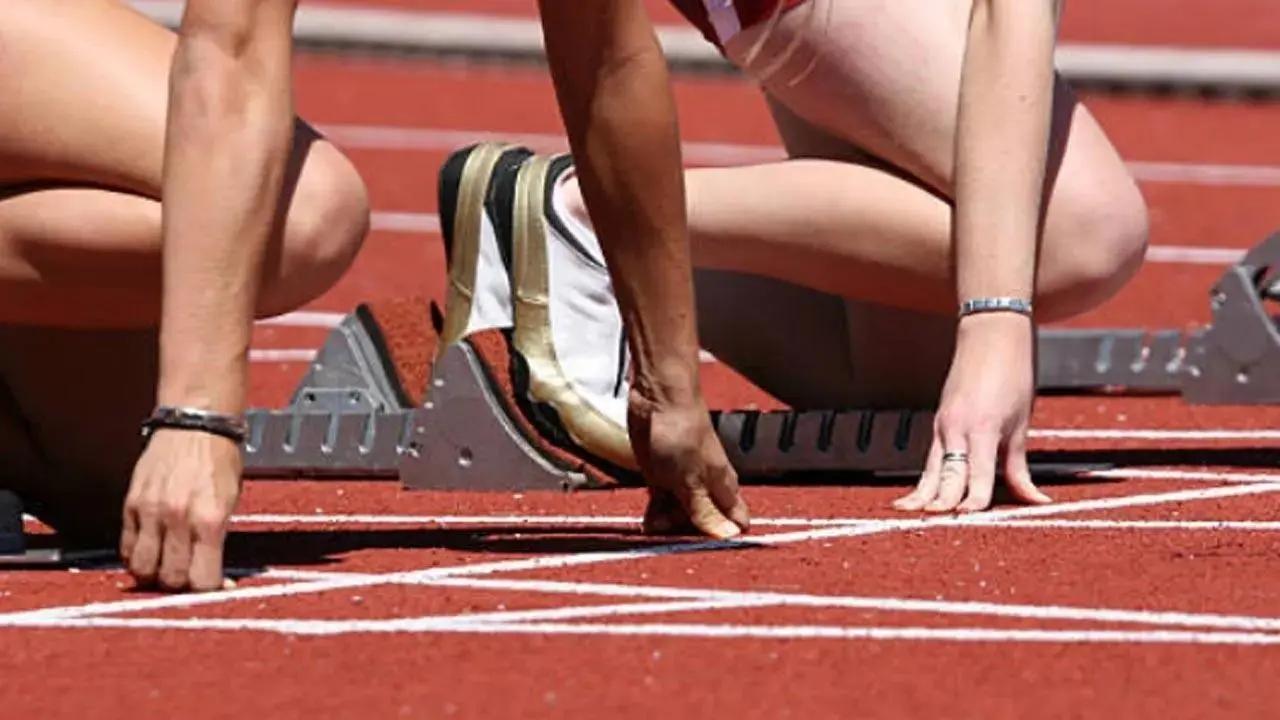With Indian athletes performing so well at Commonwealth Games 2022, one would love to know their diet routines, meals, and so many things. To discuss all that, we sat down with clinical Dietitian & Sports nutritionist, Shweta Shah to talk on various topics regarding athlete diet, food and much, much more

Representational image. Pic/iStock
1. With the CWG 2022 ongoing, what goes into the diet of an athlete? How do aspiring athletes approach it?
Carbohydrate is the key energy-providing nutrient that must be optimized during the days leading up to and including the day of competition. Attention should also be given to optimizing water and salt levels in the body. However, during the 2-4 days prior to a competition, an athlete's need for protein and fat, as well as most other nutrients, typically does not increase above the levels that are recommended for normal moderate level training.
ADVERTISEMENT
‘Carb-loading’
Athletes who compete intensely for more than about 90 minutes benefit from ‘carbohydrate loading’ for a few days. This loading of muscle glycogen to super-compensated levels can be achieved within 2-3 days by eating a large amount of carbohydrate (about 8-10 g CHO per kg of body weight per day; see below) at the same time, training intensity is reduced to no more than easy levels of short duration. It is assumed that a moderate to hard bout of fatiguing exercise is performed in normal training sometime earlier in the week prior to competition.
Carbohydrate in the 6-h period before competition, Athletes sometimes find a favourite pre-competition meal that not only provides extra energy during the event, but also feels ‘right’ in terms of curbing hunger, quieting their stomach and being convenient as well as practical. In sports that do not cause fatigue or carbohydrate depletion (e.g., gymnastics, ski jumping, etc), the pre-event meal need not be predominantly carbohydrate.
However, in intense competitions lasting longer than about 60 minutes, athletes are advised to either: Preparation for competition
● Eat 1-4 g/ kg body weight of carbohydrate during the 6-h period before exercise, or
● Take in no carbohydrate, if preferred, but only when a carbohydrate loading diet has been followed during the prior 2-3 days and the competition is not late in the day.
Fluid intake prior to competition
Athletes should drink sufficient fluid with meals on the day before competition to ensure hydration on the morning of competition. The athlete should not refrain from drinking water or carbohydrate-containing fluids during the hours leading up to warm-up before competition and it is recommended that approximately 400-700 ml be ingested during the 60–90-minute period before the start of the event. This will allow sufficient time for urination of excess fluid. During competitions lasting longer than 1 hour and which cause heavy sweating without sufficient opportunity for fluid intake, athletes often benefit by drinking 300-600 ml of fluid during the 15 minutes period immediately before the start of the event.

Dr. Shweta Shah
2. Does diet differ from region to region - CWG is in England, will it create an obstacle?
Yes, diet varies from place to region. Every place and culture in the world have a wide variety of diets. Each is affected by historical customs as well as the available products and livestock. The food that many people throughout the world eat is still heavily influenced by regional preferences, agricultural economics, and incomes. Athletes and competitors from all over the world will need to adjust to England since the CWG is held there. They will have to think more carefully and work more to choose the correct meal for them. Making sure they consume adequate macro- and micronutrients in line with their needs while taking into consideration changes to their environment, such as weather, temperature, and slightly altered circadian rhythms, is crucial; the rest will be simple to handle.
3. What if an athlete is vegan? Does it affect his/her working routine?
When an athlete decides to go vegan, the most common question is, "Dude, where do you get your proteins?" Vegan diets are typically higher in carbs, fibre, micronutrients, phytochemicals, and antioxidants than omnivorous diets, while being lower in calories, protein, fat, vitamin B12, n-3 fats, calcium, and iodine. Because plant-based foods promote satiety, it can be difficult to consume a lot of energy in some cases. Athletes may need to consume more of these foods than omnivores and other vegetarians. However, a vegan diet can adequately meet the needs of the majority of athletes with careful strategic food selection and management, with special emphasis on meeting recommendations for energy, macro and micronutrients, and supplementation. Because vegans have low pre-existing levels of these nutrients, supplementing with creatine and -alanine may improve performance. More research is needed to determine how these nutrients affect performance in vegan populations.
4. Does vegan diet help a track and field athlete?
One of the primary advantages of a vegan diet for track and field athletes is the ability to control lean body weight. How exactly does that work? A vegan diet's high fibre content tricks the brain into thinking that a person is eating a lot of food, which prevents overeating. Tissue oxygenation improves significantly on a vegan diet. Allow me to explain. A runner's muscles require a healthy blood flow because that is what provides them with oxygen. On a vegan diet, blood is less sluggish and flows more quickly, providing muscles with all the oxygen they require. Furthermore, many fruits, vegetables, and other plant-based diets have high antioxidant content, which aids in the reduction of oxidative stress. It has also been shown that diets that emphasise plant-based meals can reduce inflammatory markers. These characteristics of plant-based diets may provide benefits in terms of safety and performance for endurance athletes.
Also Read: CWG 2022: India's medal tally and schedule for Day 8 at Birmingham
5. How does a diet differ for e.g., a weightlifter's diet and a badminton player's diet?
Individual athletes differ significantly based on the type, intensity, and duration of their training, despite the fact that the fundamentals of sports nutrition are the same for all athletes. Carbohydrates are essential for sustaining exercise-related energy. Carbohydrates can only be stored in limited quantities by the body. Exercise improves the ability to store carbohydrates. However, 60-90 minutes of intense endurance exercise, such as badminton, depletes glycogen reserves significantly. Carbohydrate loading is critical in this situation because it ensures an adequate supply of energy, prevents fatigue, and improves performance. Carbohydrate loading in high-intensity competition has the disadvantage of causing a feeling of heaviness, which is why it is not recommended for short-term competition. Furthermore, weightlifters have slightly higher protein requirements than endurance athletes such as badminton players.

Dr Shweta Shah
6. What are the must haves in an athlete's diet?
The body can’t produce B-Vitamins and therefore they must be consumed in the diet. B-vitamins are especially important for synthesizing red blood cells, converting food into energy & sports performance, namely thiamine, riboflavin, niacin, pantothenic acid, Vitamin B-6, B-12 Vitamins, and folate.
7. Apart from the above, for the ones who are not athletic but are working out, what food they must eat or avoid, to at least develop some amount of athletic body or stamina?
While certain foods in your diet can actually reduce stamina, healthy foods help to build up your stamina and increase your energy levels, especially if you’re interested in sports and athletics. It is of utmost importance to balance your macro’s really well. Bananas are always an excellent option, as they provide high amounts of energy. In addition, every serving will give you nutrients like vitamin B6, carbohydrates, fibres, fats, and some amount of protein. My personal favourite pre-workout snack is Sweet-potatoes. One medium sized potato contains 3.8 grams of fibres, 23 grams of carbohydrates, 438 per cent of the RDI for vitamin A, and 28 per cent of the RDI for manganese. Sweet potatoes give your body a steady supply of energy. This is because the body digests them at a really slow pace due to complex carbs and fibre contents. They are also a good source for manganese that helps to break down nutrients to produce energy. Beans are rich in natural energy. They help to maintain a stable blood sugar level as they are digested slowly and provide steady energy. Beans also help to fight inflammation as they contain antioxidants.
When it comes to post-workout, hot-chocolate makes a great post-workout snack. The antioxidants present have many health benefits which include an increase in the flow of blood in the body. This will help to deliver oxygen to the muscles and brain and thus improves general function. Few other good post-workout options include: Tofu, Paneer, Yogurt with a seasonal fruit/ mixed nuts , Fish, Chicken.
While touching on the subject of how to increase stamina by food, avoid the following options: Alcohol is a strict no-no if you look to improve your stamina levels. Alcoholic beverages are well known for decreasing your endurance during workouts. For the activation and coordination of the muscle fibres, you need your nervous system. The problem with alcohol is that it slows down this part of your body. You will experience dehydration, which will last through the next day, post the drinking session. Fried foods are popular because they are delicious. However, if you want to increase stamina, you should stay away from it. Your body takes longer to digest fried foods due to their high-fat content.
More on Dr. Shweta Shah: She is a Clinical Dietitian & Nutritionist from Mumbai. She holds a master’s degree in Clinical Dietetics & Nutrition from SNDT University, Mumbai and Post- Graduate Diploma in Sports Nutrition from American College of Sports Medicine.
You can visit: www.thediettherapy.com for further information
 Subscribe today by clicking the link and stay updated with the latest news!" Click here!
Subscribe today by clicking the link and stay updated with the latest news!" Click here!







